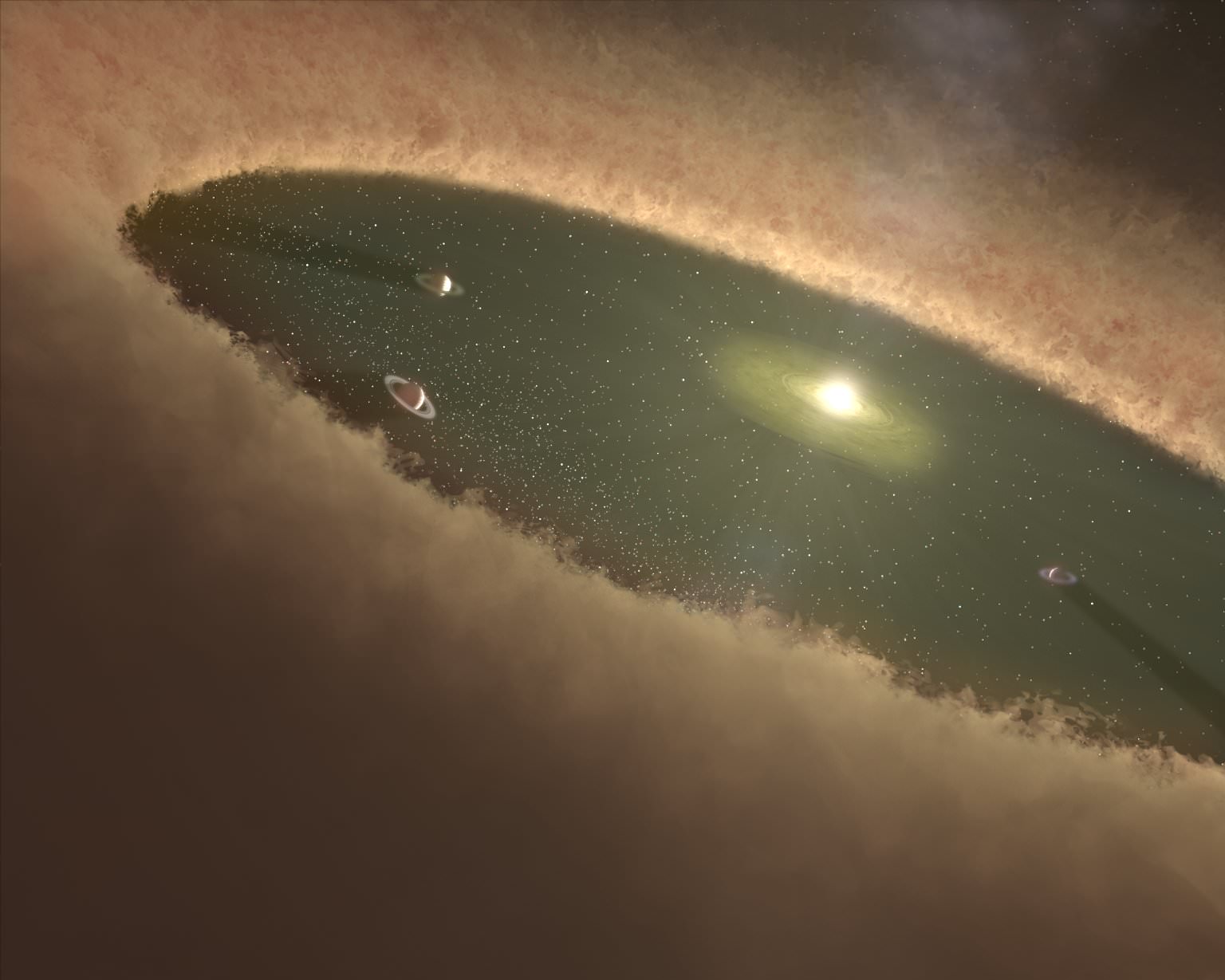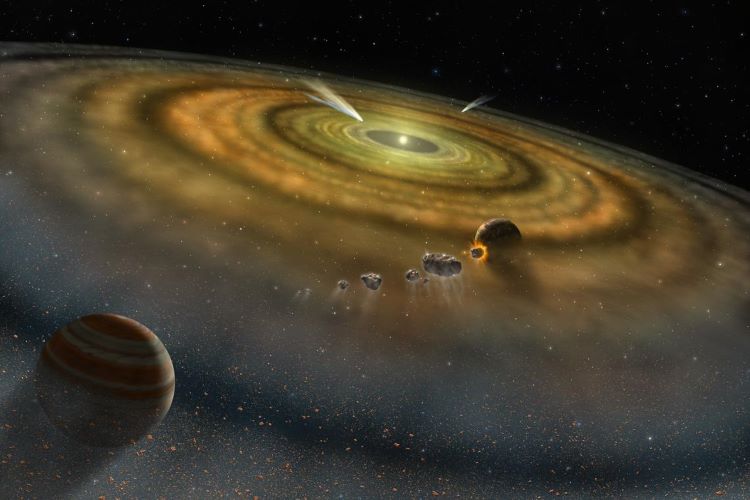Universe Today has had some fantastic discussions with researchers on the importance of studying impact craters, planetary surfaces, exoplanets, astrobiology, solar physics, comets, planetary atmospheres, and planetary geophysics, and how these diverse scientific fields can help researchers and the public better understand the search for life beyond Earth. Here, we will investigate the unique field of cosmochemistry and how it provides researchers with the knowledge pertaining to both our solar system and beyond, including the benefits and challenges, finding life beyond Earth, and suggestive paths for upcoming students who wish to pursue studying cosmochemistry. But what is cosmochemistry and why is it so important to study it?
Continue reading “Cosmochemistry: Why study it? What can it teach us about finding life beyond Earth?”Earth Might Have Formed in Just a Few Million Years

Earth formed about 4.6 billion years ago. That simplistic statement is common, and it’s a good starting point for understanding our planet and our Solar System. But, obviously, Earth didn’t form all at once. The process played out for some period of time, and the usual number given is about 100 million years.
New research suggests that Earth formed more quickly than that in only a few million years.
Continue reading “Earth Might Have Formed in Just a Few Million Years”
